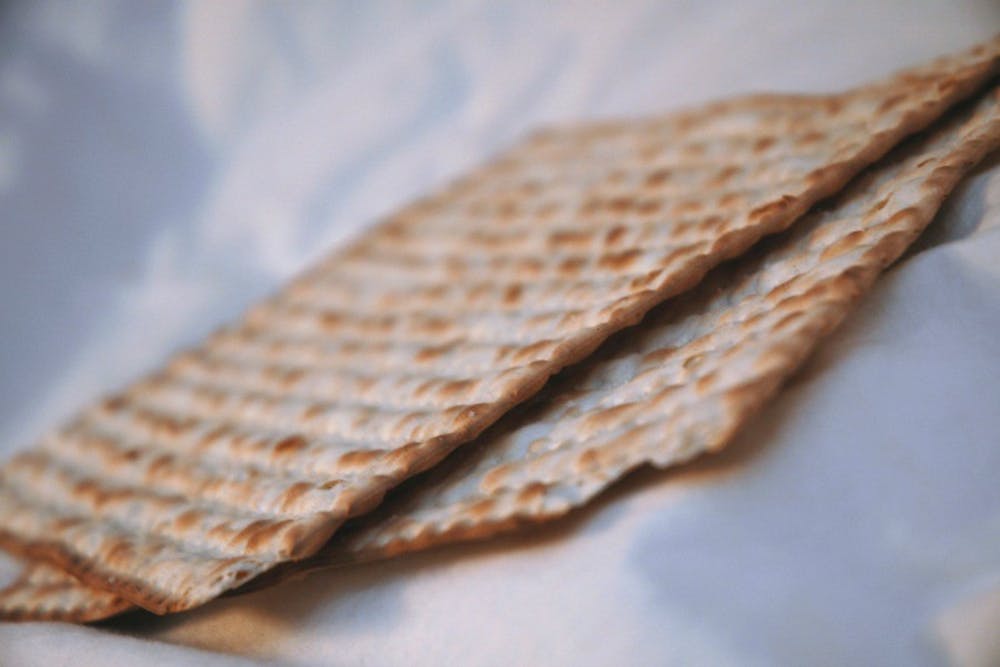By Natalie Wink, For The Miami Student
For many Miami students, this weekend marks the return from Spring Break, warmer weather and the beginning of the last leg of the semester. For Jewish students at Miami, this weekend marks the beginning of Passover, a weeklong celebration of the freedom of the Jews from Egyptian bondage and the relevance that exodus still holds today.
Although the Passover celebration is traditionally held with family members, a number of Miami students will be celebrating Passover on campus this week. Chabad, a worldwide Jewish organization with over three thousand centers in more than 65 different countries, is running a Passover Seder for students that will not be able to make the trip home to be with their families.
Seder refers to the first two nights of Passover, this year being April 3 and 4. While Passover lasts for an entire week, the first two nights are when the families gather together in order to recount their history and take a break from the busyness of life to have a meal together.
While the Seder meal can be held anywhere, many choose to celebrate Passover with their families, as the way the meal is executed is highly personal. Some family Seders last until 10 p.m. and some can go on until 3 a.m. Each family has their own traditional stories that they tell every year as well.
Junior Nicki Barrett cites the story of the first time her grandparents met as such a story.
"Every year my grandpa tells everyone at Seder the story," Barrett said. "My grandma was this beautiful girl sitting across the table, and when Seder was over, he stayed to do the dishes. They have been married over fifty years."
Barrett is sure to tell the story each year, even if she can't be at her family's Seder.
Senior Jake Gordon recounts writing songs for Passover Seders each year as a child, making the time more fun and enjoyable for everyone in attendance.
"Passover Seders bring back nothing but good memories of extended family and friends from all over coming together in one place to celebrate," said Gordon.
Fifteen steps guide every Seder celebration, including the consumption of matzah, or unleavened bread, and the traditional four cups of wine, but the homogony stops there.
"No two Seders are the same," said Rabbi Yossi Greenberg, of the campus Chabad house. "The steps are the same, but everyone does it with their own families' traditions. It is a holiday that is fully-fledged in tradition and history."
Enjoy what you're reading?
Signup for our newsletter
This year the nights for Seder land on a weekend, making trips home for the occasion much more feasible.
"It can be pretty difficult to be on campus for the holiday," said Barrett.
However, Barrett recognized Chabad and Hillel, another campus center for Jewish students, for offering open Seders that make students feel more comfortable to be away from home for the holiday.
This community feel is important, because for some students, the trip home is not easy or accessible. Junior Sam Aizen ran into some difficulties with exam scheduling for classes.
"The holiday isn't overly welcomed on campus by faculty," said Aizen. "The Jewish population on campus is small, but it is offensive that Miami doesn't acknowledge the holiday."
Schoolwork conflicted with her plans for Passover, when one of her professor refused to reschedule an exam.
"I had the option to take a zero or miss the time with my family," said Aizen. "It is ironic that I had to miss the holiday that celebrates freedom because, clearly, we aren't completely free."
In this sense, the celebration of Passover is not something that is purely historical, but something that is relevant to us today as modern citizens. The freedom that the Jews experienced in their exodus from Egypt is the same freedomthat Jewish students experience when celebrating the Passover.
"We sometimes get trapped in our boundaries of day to day life, even down to the small stuff, like being caught up in our smart phones," Greenberg said. "Three thousand years ago it was building pyramids. Today, it's our technology. We're enslaved to our own gadgets."
Greenberg stated that he hopes that both Jewish and non-Jewish students will recognize the relevance of Passover this year in their own lives.
"It's not something that happened in the past, it's something that's happening now," said Greenberg. "Today, in our modern times, we have to celebrate freedom as well."




